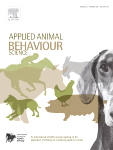Document type: Answer to o a question, published in th Journal Officiel de la République Française
Authors: question: Julien Odoul (Rassemblement National - Yonne). Answer: Ministry of Agriculture and Food Sovereignty.
Question: Mr. Julien Odoul alerts the French Minister of Agriculture and Food Sovereignty to the shocking images from a Mayenne abattoir broadcast by the L214 Group. These videos, filmed by the group in the Craon municipal abattoir (Mayenne) in November and December 2023, clearly show failures to conform with the regulations. In particular, the footage shows an operator starting to work on an animal's hide even though it is not dead, but merely stunned, and cows reacting to strokes of the knife and guillotine pliers as their legs are cut off. In short, the animals are undeniably still alive at the time of cutting. Yet, in 2021, the French Ministry of Agriculture and Food Sovereignty launched its Abattoir Plan intended to remedy such shortcomings and combat animal suffering, creating a national task force to increase inspections. More than 115 million euros were also allocated to help abattoirs modernize. Despite these actions, it must be acknowledged that there are still many violations of animal welfare standards taking place in abattoirs. The L214 Group immediately took legal action against the Craon abattoir, and a judicial inquiry has been opened. These unbearable images and acts of unprecedented barbarity and unspeakable cruelty must cease. It is urgent to put an end to them and to slaughter animals decently, showing respect for standards and the animal condition. Here, video monitoring at the time of slaughter also offers one of the solutions that would remove the current climate of suspicion and mistrust concerning abattoirs. The evaluation carried out by the Ministry's departments of the 2019-2021 pilot has already demonstrated the benefits of video control. This topic is due to be discussed in 2024 by the Comité national d'éthique des abattoirs, whose members include both professionals and animal protection associations, in order to decide whether nation-wide use of video monitoring would be of assistance in curbing this kind of behaviour. The MP would like the Minister to take a serious look at animal conditions in abattoirs, with a view to putting a definitive stop to the compliance failures that cause intolerable suffering. He would like to know what regulations he intends to introduce, following the meeting of the Comité National d'Ethique des Abattoirs, to ensure that animals are slaughtered in dignified conditions.
Answer: The conditions under which animals are killed in abattoirs are now subject to numerous controls, whether these are provided for by the regulations or are implemented voluntarily by abattoir operators. For example, European Regulation 1099/2009 on the protection of animals at the time of slaughter requires the presence of an animal protection officer, who must be able to require abattoir staff to take the necessary corrective measures to ensure compliance with regulatory requirements. In addition, state officers (veterinarians and official auxiliaries) regularly audit animal slaughter conditions, report any cases of non-compliance and take appropriate administrative and legal measures. Third-party audits are also carried out on animal protection issues by abattoir customers as part of commercial contractual requirements. In addition, over the past few years, the industry has set up a system of voluntary animal protection audits in abattoirs, with an assessment grid drawn up in collaboration with animal protection associations. Last, some associations, such as OABA (l'œuvre d'assistance aux bêtes d'abattoirs), have their own auditors who are invited by abattoirs to run diagnostic assessments of slaughter conditions. It should be remembered that abattoir professionals have the primary responsibility for respecting animal welfare, to which are added the mandatory duties of veterinary inspectors with regard to abattoir inspections. Each animal must be inspected before slaughter. However, the conditions under which animals are handled, from unloading to slaughter, are not subject to constant oversight by government departments. Compliance with animal protection requirements is checked at least twice a year by the inspection services based at slaughtering plants, in the form of comprehensive audits. The implementation of internal monitoring by the operator is also verified. Last, physical checks are regularly carried out at slaughtering stations. Over the past two years, additional measures have been introduced by the government to increase checks on compliance with animal protection standards in abattoirs, and to implement appropriate administrative or punitive follow-up measures, targeting establishments whose slaughtering procedures require improvement. Last, in July 2021, the Ministry of Agriculture initiated an "abattoir plan" to ensure strict compliance with regulatory requirements, including those relating to animal welfare during slaughter, which includes support for the work required to improve practices [115 million euros (€M) provided to support 181 abattoirs], strengthening of local abattoir networks, strengthening of controls via a rapid intervention task force, and wider monitoring throughout France, accompanied by the implementation of appropriate further action in conjunction with prefectures. In July 2023, the French Ministry of Agriculture launched an initiative to preserve the appropriate network of abattoirs in each region, so that the long-term viability of the livestock industry can be ensured. The 2024 Finance Act makes provision for the government to underwrite €50 million of outstanding loans, to provide support for abattoirs that are of strategic interest to a sector and/or area of production.






